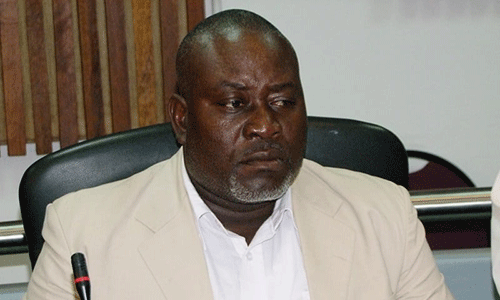Swapo backbencher Modestus Amutse has said being a government student funding recipient does not automatically mean receiving the actual funds needed, as the release of funds is dependent upon the approval of the national budget.
Amutse, in particular, pointed at the misalignment between the national budget approval and institutions’ academic year where agencies such as the Student Financial Assistance Fund (NSFAF) need to implement programmes using the allocated funds.
Part of the challenge, he said is that finance minister Iipumbu Shiimi presented the 2022/2023 budget to parliament on the 24 February 2022 for debate and eventual approval in April, which means institutions such as NSFAF can only start to execute their programmes from around May/June/July.
“NSFAF funds students to study at higher education and vocational institutions in Namibia and around the world. Given the limited funding from the government, NSFAF has been focusing on funding the students who are coming from underprivileged families with low or no salaried income. This means that until the approval of the budget is granted, NSFAF is unable to execute the award of new students, and pay continuing and new students,” he reasoned.
The budget cycle in Namibia has four phases. These include the budget formulation where the Executive drafts the budget; while the other is the budget enactment, where finance presents the budget to parliament for debate and approval. The third phase is budget execution where government agencies and departments implement programmes using the allocated funds. The fourth phase is auditing and assessment where government agencies and departments report on expenditure and the auditor general carries out audits and reports to parliament.
Amutse argued the institutions of higher learning start their academic year in January and February of each year when students are required to register.
Some of the institutions will allow continuing students who are funded by NSFAF to register with no or minimal registration fees and some do not allow students to register at all without money, especially those who are not funded yet by NSFAF.
“Apart from the registration and tuition fees, students from underprivileged backgrounds would require non-tuition and accommodation fees for them to be able to go and live in towns where their institutions are located. This usually results in these students abandoning their studies, which allows for the vicious cycle of poverty to continue within their families,” Amutse noted.
He recommended it is imperative that government make sure that students from underprivileged backgrounds admitted to institutions of higher learning are appropriately and timely funded and paid for by NSFAF.
To achieve this, he suggests the finance ministry establish a special revolving fund to fund and pay for the new and continuing students from poverty-stricken backgrounds.
According to Amutse, the fund must have enough funds to pay for these students from January each year up to a month after the national budget is approved.
This, he believes will address the misalignment between national budget approval and institutions’ academic year.
Given the reality of limited resources, he said NSFAF should find a selection criterion that will identify the most underprivileged of the most financially challenged students who will benefit from this fund.
“The measures can be similar to the ones used for drought relief where one has to look not only at biological parents, and monthly earnings, but also the total household support system. If agreed, the Ministry of Finance should take a lead in coming up with an approach and model, and report back to parliament on the progress,” he stated.
He pleaded with fellow MPs for their support, saying their decision in this matter will surely affirm the political will, individually and as a collection, to close the gap between the rich and the poor.
This he believes will ensure and guarantee that children from poor families have access to tertiary education.
–anakale@nepc.com.na


